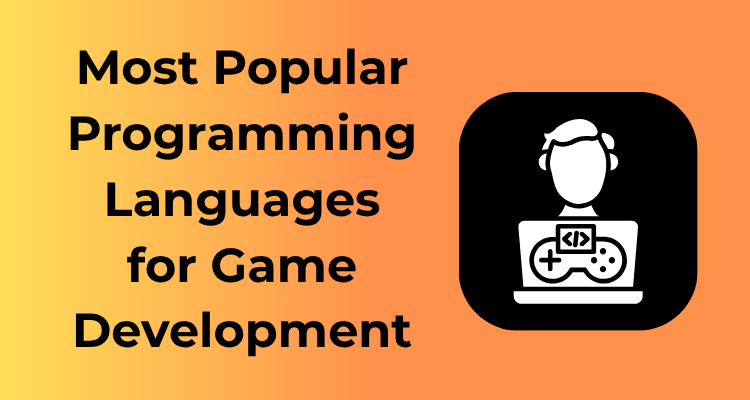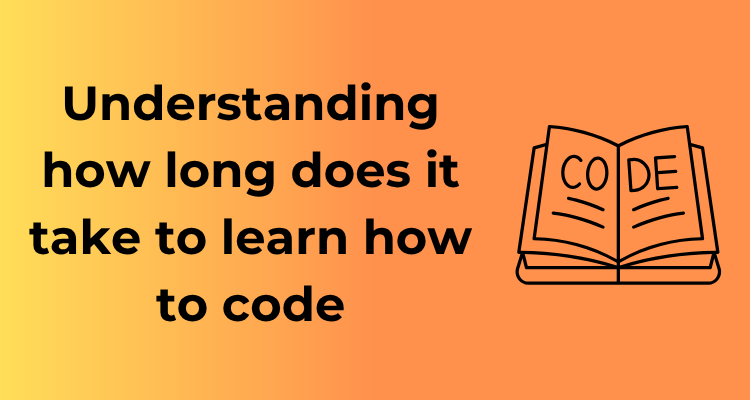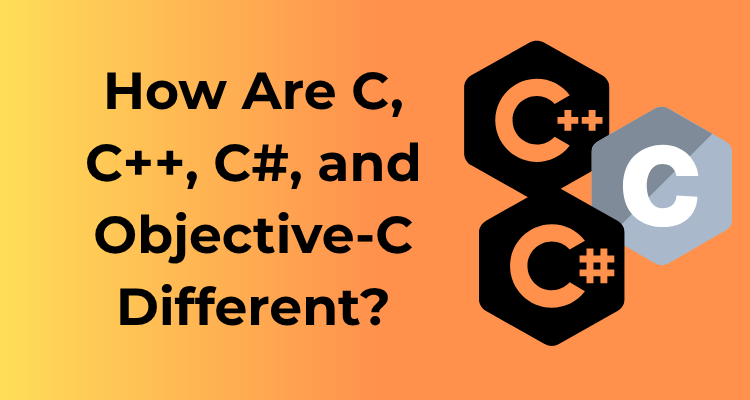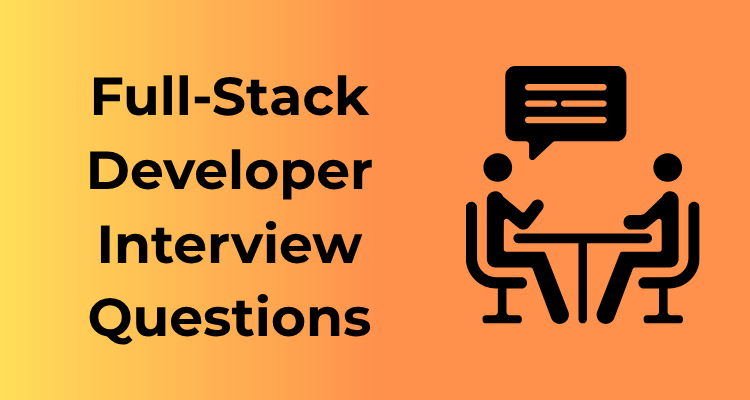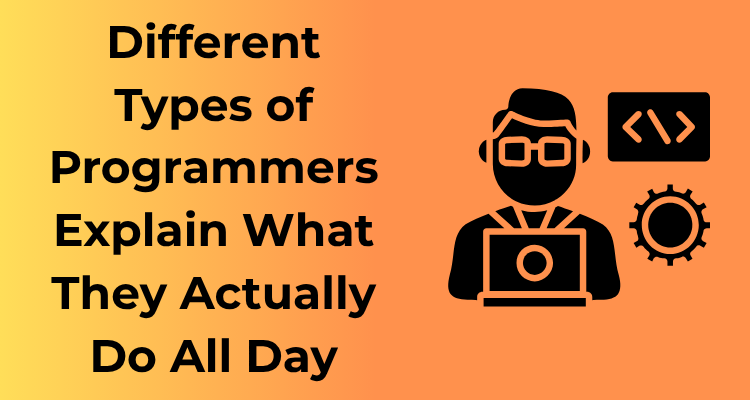Game development is more than just designing characters or crafting storylines—it begins with choosing the right programming language. Each language brings its own strengths, capabilities, and limitations, shaping how your game performs, scales, and evolves. Whether you’re building a fast-paced action title, an immersive 3D world, or a simple indie project, understanding the most popular programming languages for game development helps you make smarter choices from day one. Let’s explore the languages that power today’s biggest games and how they can elevate your next project.
Why Choosing the Right Language Matters in Game Development?
So, you want to dive into the dazzling world of game development? Awesome choice! But, hold on—before you start sketching those cool graphics or brainstorming epic storylines, there’s an important question to tackle: what programming language should you use? Believe it or not, this decision can make or break your entire game project.
1. Efficiency Can Save the Day
Your programming language isn’t just some tool in the background; it fundamentally shapes how quickly and efficiently your game runs. Imagine coding a fast-paced action game where inputs feel delayed or the graphics are choppy. Yikes, right? The right language ensures smooth gameplay by handling computations efficiently. When performance is off-the-charts, players stay fully immersed in your game instead of fighting lag.
2. Every Language Brings Different Skills to the Table
Here’s a fun analogy: think of programming languages as superheroes. Each has unique superpowers. Some are brilliant at high-performance visuals; others are champs for physics calculations or online multiplayer logic. If you choose a language that doesn’t suit your game’s needs, you’re essentially asking the wrong superhero for help.
- C++: Think of this as the Superman of game development—fast and powerful but requires some mastery to wield well.
- Python: Your friendly neighborhood language—easy to learn and perfect for prototyping or simpler games.
- Java: A dependable all-rounder, often used for mobile and indie games.
The key is to match your game’s requirements with the strengths of the language—just like a player matching tools to the mission in a game.
3. Development Timeline, Budget, & Skillset Are Also Vital
In game development, time and money are like precious collectibles you want to save, not waste. Some languages (hello there, Python!) let you get prototypes up and running super fast. This can save immense effort when you’re refining the game mechanics early on. Meanwhile, if you’re aiming for a visually stunning AAA title, you might want to invest the time and budget to work with a high-performance language like C++.
“Always plan ahead! The tools you pick at the beginning can affect everything—from speed and gameplay to the overall feel of the game.”
4. Don’t Forget About Team Collaboration
If you’re developing games solo, the decision rests solely with you. But in most cases, game development requires teamwork. Choosing a language that’s well-documented and widely adopted means your team can share the load and troubleshoot together. Plus, you’ll have access to a broader community for help when things get tricky.
Imagine you’re juggling a big game scene with lots of moving parts. Working with a familiar language allows your team to coordinate and problem-solve like a finely-tuned machine. Win-win!
5. The Future Needs to Be Bright!
Lastly, remember that trends in game development evolve constantly. Choosing a language with staying power gives your game longevity. Languages like Python, JavaScript, and C++ boast active communities, frequent updates, and wide compatibility. These are major perks when you’re thinking of maintenance or building updates down the line.
The Classics: Languages That Laid the Foundation for Game Studios
Ah, the classics! If you ever wondered, “What were the programming languages that helped gaming become the global cultural phenomenon it is today?” you’ve come to the right place. Let’s dust off the history books (well, the digital kind) and talk about some legends that helped shape game development into what it is now.
C++: The King of Efficiency
If there’s one language synonymous with the word “classic” in game development, it’s C++. Known for its efficiency, versatility, and high performance, C++ has fueled many major game engines like Unreal Engine, CryEngine, and more. Why is it so good for games? Two words: control and speed.
- Control: C++ gives game developers fine-grained control over memory management, crucial for creating expansive open worlds or fast-paced gameplay.
- Speed: Its superior performance allows developers to create complex algorithms that run smoothly—whether you’re slicing up enemies in a hack-and-slash or racing cars at break-neck speed.
In fact, many classic franchises like Doom, Call of Duty, and The Elder Scrolls have the fingerprints of C++ all over the codebase. It was—and still is—many developers’ go-to language for tackling complex, performance-heavy projects.
C: The Predecessor & Foundation
Before game dev wizards mastered C++, they started with the foundation: good old C. This language set the groundwork for C++ and was used in early game development to deliver arcade-style and basic computer games. While it’s a bit more low-level than its successor, its simplicity and speed made it a pioneer in text-based and 2D games.
Think of classics like Pong or Pac-Man. These games may not have 3D hyper-realistic environments, but their algorithms and logic were often written in C. It’s what you’d call the “ancestor of modern video games.”
Java: The Enterprising Workhorse

Next up, there’s Java. While not as performance-focused as C++, Java also played a critical role in the gaming landscape. Known for its “write once, run anywhere” philosophy, Java allowed developers to create games that could function on a variety of devices without changing too much of the code. This contributed to the rise of accessible games, particularly those enjoyed on desktop computers and mobile devices.
Here’s what makes Java a key player:
- Cross-Platform Capabilities: It’s designed to work on multiple platforms with ease, so those retro-style Indie games you’ve been addicted to? They might have Java to thank!
- Accessible Learning Curve: Compared to C++, Java is easier for new developers to learn, paving the way for a whole new wave of programmers exploring gaming.
If you’ve ever played Minecraft—one of the most iconic sandbox games in the world—you’ve experienced Java’s potential firsthand!
The Lasting Influence of the Classics
These classic languages didn’t just pave the way; they built the bridge to the future of gaming. Whether you’re enjoying a basic 2D game or the latest AAA masterpiece, the enduring principles of C, C++, and Java continue to influence modern game studios worldwide.
So, if you’re a budding developer yearning to follow in the footsteps of legendary game programmers, consider diving into these timeless languages. Who knows? You might just end up creating the next big thing in gaming!
Breaking Ground with Versatility: The Multi-Use Competitors in the Industry
Have you ever wondered why some programming languages seem to pop up everywhere, not just in game development, but also in app creation, data science, or even web development? These multi-use competitors are trailblazers for a reason! Their versatility allows developers to jump between projects without skipping a beat, making them invaluable in today’s fast-paced tech world. Let’s break down some of the heavyweights in this department and why they’re perfect for game development.
Why Versatile Languages Shine
Think of it this way: a versatile language is like a Swiss Army knife. It’s not just about game development—it’s about having tools to accomplish various tasks. These languages excel in game dev because they’re adaptable, efficient, and supported by massive communities. If you’re someone who doesn’t want to box yourself into one niche, choosing one of these programming languages could be your golden ticket!
The Multi-Use Programming Superstars
Here’s a quick rundown of programming champions that bring flexibility to the table:
- Python: Python is the sweetheart of versatility. While not always the go-to for AAA game development, its simplicity makes it perfect for indie projects, prototyping, and scripting inside game engines like Unity. Plus, with libraries like Pygame, you can jumpstart your game-making journey in no time.
- C#: If you’ve ever dabbled with Unity, you’ve probably encountered C#. This language strikes a balance between power and approachability. Not only is it versatile for game design, but it’s also widely used in mobile apps and other software—giving you extra bang for your buck.
- JavaScript: Why is JavaScript here, you ask? Well, in recent years, web-based games have gained popularity, and JavaScript powers those interactive browser experiences. Add frameworks like Three.js or Phaser into the mix, and boom—you’re creating dynamic games that can run anywhere.
- Java: Known for its “write once, run anywhere” flexibility, Java is a favorite for Android games. Platforms like LibGDX or Godot also tap into its power, enabling developers to deploy games across multiple devices with ease!
Versatility Meets Game Development
Here’s the thing: choosing a versatile language doesn’t mean you’re sacrificing performance. Thanks to heavy-duty frameworks and optimization features, these languages often perform amazingly well for small- to medium-scale games. What’s more, since they’re used outside of gaming, learning one of these also opens doors to gigs in other tech sectors. It’s like investing in a toolkit that can build all kinds of exciting tech dreams—not just games!
How Coding Communities Shape the Evolution of Game Languages
Let’s take a moment and think about this: Without the support of coding communities, where would our beloved game development languages be today? Probably nowhere near as advanced as they are right now! From sharing knowledge to driving innovation, coding communities play a huge role in shaping the future of game programming languages. Let’s dive in and explore how these awesome groups of coders make things tick.
The Power of Open Source Communities
Ever heard of the saying, “it takes a village”? Well, in the game development world, it takes a community. Thanks to the collaborative contributions of open-source coding communities, languages like C++ and Python have seen tremendous improvements over the years. These communities act like “brain hubs,” bringing together developers of all experience levels to refine, debug, and enhance programming tools for game development.
- Why it Matters: With open-source contributions, anyone passionate about a language can suggest improvements or bug fixes. This fosters growth, adaptability, and innovation, helping languages evolve faster.
- Fun Fact: Python’s game development library, Pygame, owes much of its evolution to community involvement!
Forums, Stack Overflow, and Instant Troubleshooting
If you’ve ever spent hours stuck on a line of code and finally found the answer on Stack Overflow, then you already know how valuable these platforms are. Forums and Q&A sites like Stack Overflow are lifelines for game developers. They’re the reason troubleshooting complex language syntax or debugging game code isn’t as solitary (or frustrating) as it could be.
- Quick Answers: Got a problem with Unity’s C# scripting or Unreal’s Blueprint logic? Chances are, thousands of developers have tackled a similar issue and have shared step-by-step solutions online. This collaborative spirit ensures game developers can solve problems quickly and focus on creativity.
- Knowledge Sharing: Platforms like Reddit’s r/gamedev or Unity forums aren’t just about solving problems—they’re where developers combine ideas, share best practices, and push boundaries.
Maintaining Relevance Through Collaboration
Coding communities also influence how a programming language continues to stay relevant in the gaming world. A good example? The evolution of JavaScript. JavaScript traditionally wasn’t seen as a “game dev go-to,” but thanks to extensive community adaptations—like the Three.js library or Babylon.js—developers can now create amazing browser-based games by leveraging it.
Moreover, languages like Rust, an emerging contender in the gaming industry, have seen rapid adoption partially because its community is so robust. Devs come together to build libraries, solve performance challenges, and adapt Rust’s security features for gaming purposes. Peer-led projects, downloadable assets, and language-specific game engines often emerge from these collaborative spaces.
Fostering Inclusivity and Mentorship
One of the coolest aspects of coding communities is how welcoming they’ve become. Whether you’re a complete beginner designing your first pixel art adventure or a seasoned pro scripting your magnum opus, there’s always someone willing to guide you. Communities bring mentorship to life—you might find an experienced coder explaining Lua scripting basics for Roblox enthusiasts, or a Blender-using developer helping others integrate Python for animation sequences.
Frameworks and Engines: Languages Backing Big Game Titles
Let’s talk about the magical pairing of programming languages with game engines and frameworks. For those of you who are new to game development, think of game engines and frameworks as powerful tools that help developers bring epic virtual worlds to life. But here’s the kicker—these tools rely heavily on specific programming languages to function, and that choice can make all the difference in the game’s quality and efficiency.
Unreal Engine: The Realm of C++
If you’ve ever played games like Fortnite or Final Fantasy VII Remake, you’ve already experienced the power of Unreal Engine. This industry powerhouse is practically synonymous with AAA game development. C++ is the backbone of Unreal Engine, offering high performance, flexibility, and control. If you’re aiming to create games with cutting-edge graphics and mechanics, knowing C++ is a must.
Why is C++ so integral to Unreal? It’s because C++ allows developers to write high-performance code while also providing low-level memory management. Basically, it lets creators tune every piece of their game to perfection. The cherry on top? Unreal Engine also provides a visual scripting tool called Blueprints, which is beginner-friendly but still works hand-in-hand with C++.
Unity and Its Love for C#
Unity is a go-to engine for both indie developers and major studios, powering hits like Among Us and Hollow Knight. C# is the main programming language in Unity’s ecosystem, making it perfect for games that strike a balance between ease of development and powerful gameplay mechanics.
Here’s why developers adore the C# + Unity combo:
- Simplicity: C# has a more user-friendly syntax compared to languages like C++, making it accessible for beginners.
- Strong Framework Support: Unity’s API and toolsets blend seamlessly with C#, speeding up workflows and enabling rapid prototyping.
- Cross-Platform Flexibility: Unity enables developers to target multiple platforms—from PC and mobile to VR—without needing to rewrite large portions of their code.
Python and Frameworks for Beginner-Friendly Projects
If dipping your toes into game development sounds daunting, don’t worry—Python has you covered! While Python isn’t typically used for blockbuster titles, it’s a fantastic choice for smaller games or prototypes, especially when paired with frameworks like Pygame.
Pygame simplifies tasks like rendering graphics, handling user inputs, and managing game physics. Plus, Python’s readable syntax makes coding feel less like rocket science and more like assembling a puzzle. Looking to learn quickly and get started on your first project? Python and Pygame might just be your new best friends.
Honorable Mentions: Other Language and Engine Duos
While C++ and C# dominate the industry’s biggest engines, other languages also shine when paired with specific frameworks. For instance:
- JavaScript + Phaser: Ideal for browser-based games that load quickly and are accessible on various devices.
- Rust + Bevy: Still budding but gaining traction for its safety and performance in modern game development.
- Lua + Godot: Highly praised for scripting flexibility, making it a favorite for 2D projects and indie creations.
Game Engines Are the Secret Sauce
Ultimately, the language-engine pairing you choose will depend on your game’s goals, scope, and performance needs. For jaw-dropping visuals and massive scopes, dive into Unreal with C++. For dynamic cross-platform games, Unity and C# are your allies. If you’re experimenting or just getting started, Python and smaller frameworks like Pygame or Godot will guide you gently into the world of game development. Whatever toolset you pick, remember—every great game starts with that first line of code!
Emerging Contenders: Languages Molding the Future of Gaming
Let’s talk about the future—the exciting corner of game development filled with innovation, potential, and fresh ideas. The gaming industry is constantly evolving, and with it comes a wave of new programming languages designed to meet the unique demands of tomorrow’s games. These emerging contenders are molding the future of gaming, bringing in new tools, efficiency, and creativity. So, let’s dive into a few of these rising stars!
Rust: The Poster Child of Performance and Safety
One name you’ve likely heard buzzing in tech circles is Rust. This language has become increasingly popular for its unique ability to provide high performance without sacrificing safety. In game development, where memory management is a high-stakes game, Rust shines with its zero-cost abstractions and excellent error handling. Fancy building a game engine that’s fast and bug-resistant? Rust might just be your best bet. Studios exploring Rust now are looking ahead to create titles that are not only efficient but also free from the constant headaches of crashes and memory leaks.
“Rust is no longer just a buzzword, it’s proving to be a practical choice for future-focused developers.”
Godot’s Built-In Language, GDScript
With the steady rise of the Godot Engine as an accessible, open-source powerhouse for indie developers, its custom coding language, GDScript, is shining bright. Think of GDScript as a simpler cousin of Python—easy to learn, simple to use, and tightly integrated with Godot’s toolset. This makes prototyping and developing games incredibly efficient. While it may not rival giants like C++ for AAA titles, GDScript is empowering smaller teams and solo developers to bring unique stories and gameplay ideas to life.
Kotlin: Android’s Game Changer
As mobile gaming skyrockets, Kotlin is carving out its niche as a go-to language for Android game development. Officially supported by Google, Kotlin is both modern and concise, allowing developers to write cleaner and more robust code. New tools and frameworks for Kotlin, like KorGE, are opening doors for creating 2D mobile games that run smoothly across devices. Mobile gaming isn’t slowing down any time soon, and Kotlin is helping devs keep pace with players’ expectations.
Swift for Apple’s Game Scene
Apple’s ecosystem thrives, and with it comes Swift, a language Apple developed for efficiency and performance on their platforms. From AR Kit adventures to sleek iOS arcade games, Swift is becoming a favorite for developers who love to dream up immersive mobile experiences. Its easy learning curve and powerful capabilities make it a promising language, particularly as gaming on iPhones and iPads continues to expand.
Functional Programming Enters the Spotlight
And how about functional programming languages like Elixir and Haskell? These languages don’t just scream “cutting-edge”; they’ve begun to break into areas like multiplayer server development. Why? Functional languages excel at scaling operations, making them perfect for online games with massive user bases. Though they aren’t widespread yet, keep an eye on them if your dream project involves building a large-scale virtual world.
Real-World Examples: Matching Games to Their Programming Languages

When it comes to game development, the choice of programming language is like picking the right tool for the job. Some games thrive because their creators chose a language that perfectly complemented their vision. To understand how programming languages bring virtual worlds to life, let’s dive into some real-world examples from popular games and see how their chosen languages contributed to their success.
1. The Witcher 3 – Powered by C++
Let’s start with the critically acclaimed The Witcher 3: Wild Hunt, developed by CD Projekt Red. This sprawling open-world RPG was primarily built using C++. Why C++? For starters, it’s a powerhouse when it comes to performance, which is vital for games with expansive environments, rich textures, and complex NPC behaviors. The tight control over memory management provided by C++ allowed the developers to make every ounce of their game engine, REDengine, as powerful and efficient as possible.
Fun fact: C++ is one of the most popular languages in AAA game development because it can handle intense computations and maximize frame rates—a must for stunning graphics and smooth gameplay!
2. Among Us – Unity and C# in Action
Shifting gears to one of the most viral indie successes, *Among Us* by InnerSloth, we have a game built using the Unity Engine and C#. C# is a natural fit for Unity because it offers simplicity with a knack for creating complex mechanics. For Among Us, the language translated quirky art styles, straightforward game mechanics, and dynamic multiplayer connectivity into an instant classic that’s fun for friends (or frenemies) to enjoy.
Takeaway for aspiring developers? If small team dynamics and accessible tools interest you, dabbling in C# with Unity is a great starting point!
3. Fortnite – Taking Over the World with Unreal Engine and C++
When we think of worldwide gaming phenomena, Fortnite instantly comes to mind. Epic Games built this massive juggernaut with the Unreal Engine, which is primarily powered by C++. From crafting its visually stunning environment to the smooth transitions between battle royale chaos and creative building, the power of C++ enabled highly optimized gameplay. The Unreal Engine’s commitment to C++ flexibility gave Epic Games the ability to experiment with frequent updates, keeping millions of players thoroughly engaged.
- Pro Tip: If you aspire to create visually impressive 3D worlds like Fortnite, start exploring Unreal Engine’s friendly tools and learn how C++ operates behind the scenes.
4. Minecraft – Java Building Blocks
No game has warmed hearts across generations like Minecraft. This blocky sandbox game, which catapulted Mojang to fame, was built using Java. Java’s portability gave Minecraft the ability to run on virtually any device—from desktops to mobile platforms—making it a global sensation. The language’s extensive libraries also allowed for easy modding, encouraging players to tweak and enhance the game with custom content.
Think of Java as the friendly giant of game development: if you’re curious about creating games with cross-platform compatibility, Java is your gateway!
5. Celeste – The Magic of C# and MonoGame
Finally, let’s not overlook the pixel-perfect and heartfelt platformer, Celeste. Built with C# and MonoGame, its developers, Maddie Thorson and their team, showcased how simplicity in tools can work wonders in delivering precise mechanics, emotional storytelling, and retro aesthetics. The use of C# allowed for streamlined game logic and easy debugging, letting creativity shine through.

